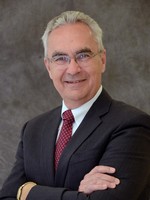.jpg) In the area of medical malpractice law, litigation often becomes expensive, time consuming, and an emotional drain on the healthcare providers involved. The majority of times cases are resolved by settlement, motivated by various factors including simple economics and the fear of a large verdict. Part and parcel of this process is the ability to manage these claims effectively, especially from the institutional standpoint, and it is vitally important to have effective claims specialists who know the “lay of the land,” assisted by experienced defense counsel with a proven track record of defending healthcare providers and trying these cases before juries. As the healthcare community awaits the Florida Supreme Court’s decision in the McCall v. United States case, dealing with the validity of the caps on non-economic damages in medical negligence cases, the following points should be considered.
In the area of medical malpractice law, litigation often becomes expensive, time consuming, and an emotional drain on the healthcare providers involved. The majority of times cases are resolved by settlement, motivated by various factors including simple economics and the fear of a large verdict. Part and parcel of this process is the ability to manage these claims effectively, especially from the institutional standpoint, and it is vitally important to have effective claims specialists who know the “lay of the land,” assisted by experienced defense counsel with a proven track record of defending healthcare providers and trying these cases before juries. As the healthcare community awaits the Florida Supreme Court’s decision in the McCall v. United States case, dealing with the validity of the caps on non-economic damages in medical negligence cases, the following points should be considered.First and foremost, the Plaintiffs’ Bar is cohesive when it comes to picking their battles in medical negligence cases, and the Plaintiffs’ Bar knows that generally speaking, their leverage in getting cases resolved is founded on fear on the part of the healthcare provider and insurer of exposure to a large verdict. This conviction is often the driving factor in malpractice claims settling, often for large sums of money, even when the medical care in question was defensible. The Plaintiffs’ Bar also knows which providers, institutionally or otherwise, are most inclined to settle cases to avoid the risk of going to trial. Armed with this knowledge, Plaintiff’s counsel will steer their efforts toward that defendant provider in an effort to extract the most lucrative settlement.
Accordingly, as we await the ruling from the Supreme Court on the constitutionality of the caps on non-economic damages, let us remember that before there were caps, cases were defended and tried in Florida, and frequently successfully defended for hospitals and physicians. Even after the caps were implemented in 2003, jurors were never instructed on the caps even being applicable, and cases were and are still successfully defended and won by defendant healthcare providers in Florida. In the author’s opinion, where an early evaluation of the case reflects that the case is defensible and the medicine is acceptable and meets community standards, the case should be vigorously defended. By defending good medicine, the community sends a message to the Plaintiffs’ Bar that large settlements are not guaranteed despite an adverse outcome and potentially large damages. Assembling an effective defense from the outset also puts the healthcare provider in the best position to prevail, should the case end up before a jury. This defense philosophy is consistent with promoting and defending good medicine, which ultimately drives down the number and costs of settlement overall.
In furtherance of these goals, healthcare providers should not be afraid to pick the right battles and should be willing to go to trial on cases which are defensible. While often a reasonable settlement is the prudent course, where this is not possible, defensible cases should and must be defended. When this happens, the Plaintiffs’ Bar will quickly identify which providers, carriers, and law firms are not afraid to try cases. In the author’s opinion, this might be the most effective way to decrease exposure over the long term. Also remember that while no one can guarantee success in the courtroom, historically healthcare providers do far better statistically than Plaintiffs in medical negligence cases. Armed with this framework, healthcare providers should try to resolve the bad cases, defend the good practice of medicine, and pick the right battles, going to trial on cases which either can’t or shouldn’t be resolved.


























